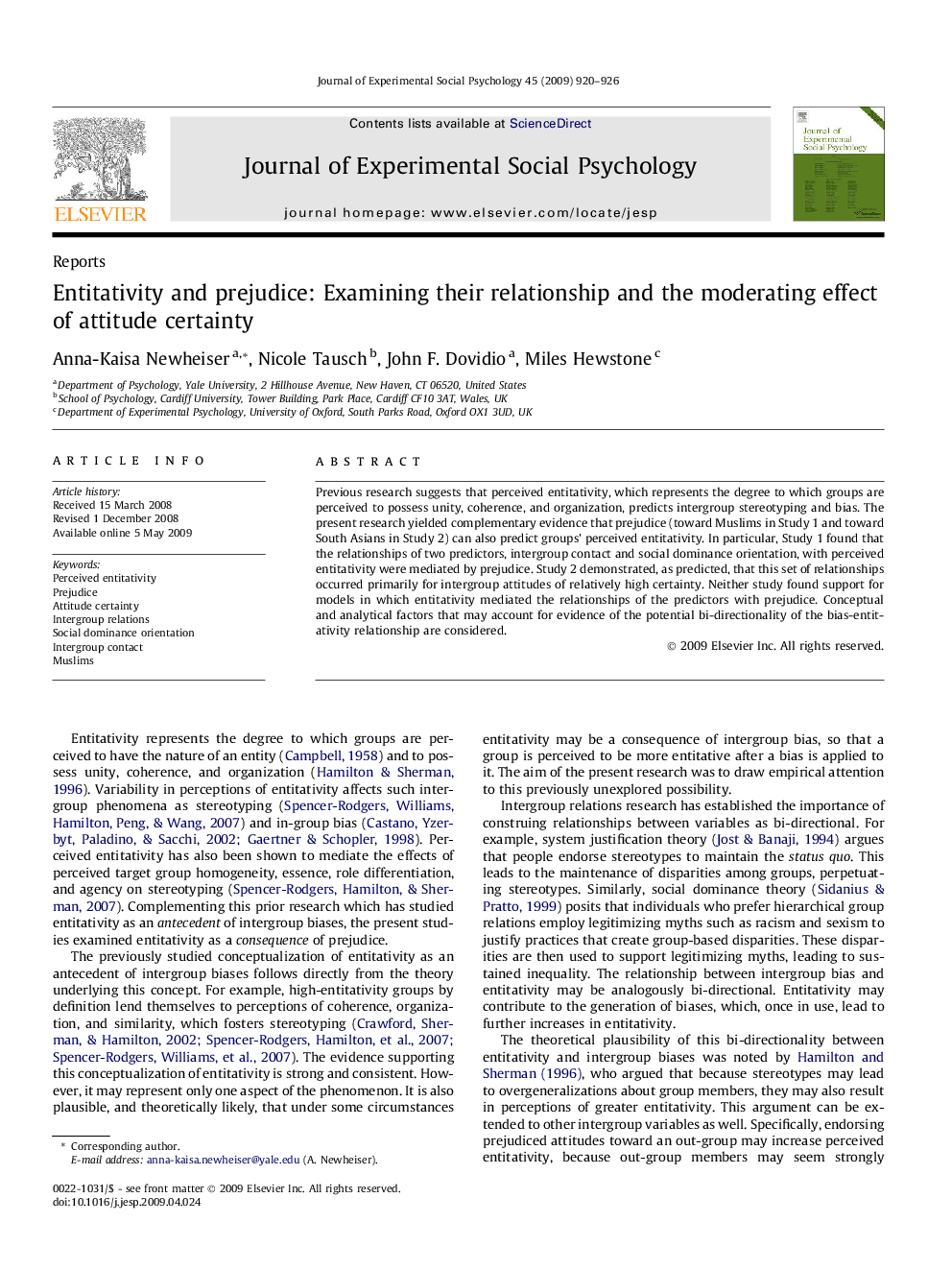| Article ID | Journal | Published Year | Pages | File Type |
|---|---|---|---|---|
| 948868 | Journal of Experimental Social Psychology | 2009 | 7 Pages |
Previous research suggests that perceived entitativity, which represents the degree to which groups are perceived to possess unity, coherence, and organization, predicts intergroup stereotyping and bias. The present research yielded complementary evidence that prejudice (toward Muslims in Study 1 and toward South Asians in Study 2) can also predict groups’ perceived entitativity. In particular, Study 1 found that the relationships of two predictors, intergroup contact and social dominance orientation, with perceived entitativity were mediated by prejudice. Study 2 demonstrated, as predicted, that this set of relationships occurred primarily for intergroup attitudes of relatively high certainty. Neither study found support for models in which entitativity mediated the relationships of the predictors with prejudice. Conceptual and analytical factors that may account for evidence of the potential bi-directionality of the bias-entitativity relationship are considered.
